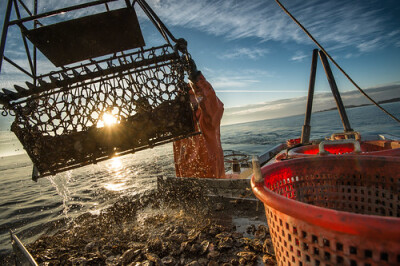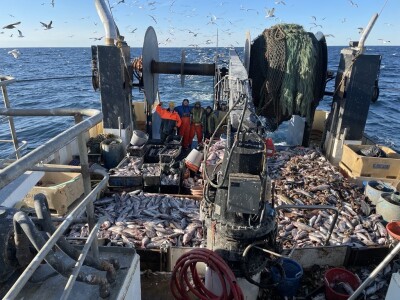As the struggling New England groundfish industry takes up the cost of federally required, on-board fishing monitors, federal regulators are considering allowing 14 boats from Maine to Cape Cod to use cameras to record their catches instead. It’s part of a pilot program to test out if cameras can replace humans and do it for less money.
Located near fishing vessels moored in Portland’s harbor, the Gulf of Maine Research Institute is a nonprofit that’s trying to modernize the oversight of commercial fishing for cod, haddock and other groundfish.
In the “gear lab,” Mark Hager demonstrates the equipment used to set up an electronic monitoring system: a computer, a GPS tracker, a hydraulic sensor and four weatherproof cameras.
“If you’ve ever been to McDonald’s and you go to the drive-through and you pull up? They are actually using almost the same cameras we’re using,” Hager says.
Hager plays footage of an actual fishing trip from a vessel that’s already been equipped with cameras. The captain and crew divide the haul into the adult groundfish they keep, and the juveniles they’re required to put back into the ocean.






